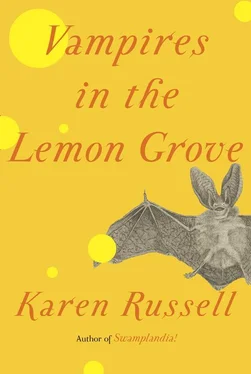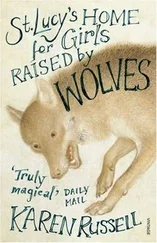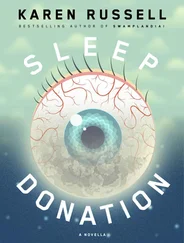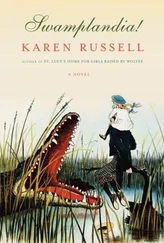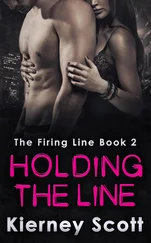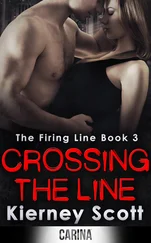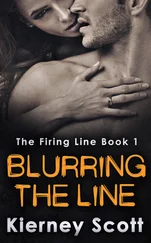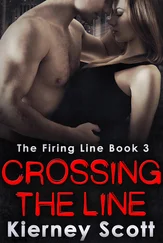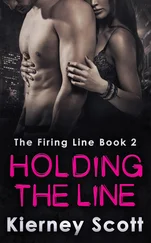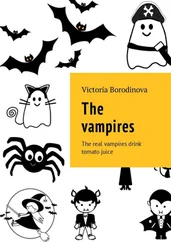That night Nal had a nightmare about the seagulls. Millions of them flew out of a bloodred sunset and began to resettle the town, snapping telephone wires and sinking small boats beneath their collective weight. Gulls covered the fence posts and rooftops of Athertown, drew a white caul over the marina, muffled every window with the static of their bodies — and each gull had a burgled object twinkling in its split beak. Warping people’s futures into some new and terrible shapes, just by stealing these smallest linchpins from the present.
THE NEXT DAY, Nal went to the Athertown library to research omen birds. He was the only patron in the reading room. Beneath the painting of the full orange moon and the plastic bamboo, he read a book called Avian Auspices by Dr. Carlos Ramirez. Things looked pretty grim:
CROW: an omen of death, disease
RAVEN: an omen of death, disease
ALBATROSS: an omen of death at sea
Screech owls, Old World vultures, even the innocuous-sounding cuckoo, all harbingers of doom. Terrific, Nal thought, and if an enormous seagull followed you around and appeared to be making a blithe feast of your life, pecking at squares of paper and erasing whole futures, what did that mean? Coleridge and Audubon were no help here, either. Seagulls were scavengers, kleptoparasites. And, according to the books he found, they didn’t portend a thing.
Nal began going to the nest every day. He woke at dawn and walked barefoot on the chilly sand down to the hollow. By the second week he’d collected an impressive array of objects: a tuxedo button, a scrap of paper with a phone number (out of service — Nal tried it), a penny with a mint date one year in the future. On Friday, he found what appeared to be the disgorged, shimmering innards of a hundred cassette tapes, disguised at first against the slick weeds. The seagulls had many victims, then — they weren’t just stealing from Nal. He wondered if the gulls had different caches, in caves or distant forests. Whenever he swept his hand over the damp nest he found new stuff:
An eviction notice, neatly halved by the gull’s beak
Half a dozen keys of various sizes — car keys, big skeleton keys and tiny ones for safes and mailboxes, a John Deere tractor key, one jangling janitor’s ring
A cheap fountain pen
A stamp from a country Nal didn’t recognize
An empty vial of pills, the label soaking and illegible
Most disturbingly, on the soggy bottom of the nest, beneath a web of green eider, he found the disconnected wires of a child’s gleaming retainer
Nal lined these objects up and pushed them around on the sand. He felt like the paleontologist of some poor sod’s stolen fate — somewhere a man or a woman’s life continued without these tiny vertebrae, curving like a spine knocked out of alignment. Suddenly the ordinary shine of the plastic and aluminum bits began to really frighten him. He drew the tiny fangs of the tractor key through the sand and tried to imagine the objects’ owners: A shy child without his retainer, with a smile that would now go unchaperoned. A redhead with pale eyelashes succumbing to fever. A farmer on his belly in a field of corn, hunting for this key. What new directions would their lives take? In Nal’s imagination, dark stalks swayed and knit together, obliterating the stranger from view. Somewhere the huge tractor wheels began to groan and squeal backward, trampling his extant rows of corn. A new crop was pushing into the spaces that the tractor had abandoned — husks hissing out of the earth, bristling and green, like the future sprouting new fur.
We have to alert the authorities, he decided. He zipped the future into his backpack and walked down to the police station.
“What do you want me to do with this sack of crap, son?” Sheila, the Athertown policewoman, wanted to know. “The pawnshop moved; it’s down by the esplanade now. Why don’t you take this stuff over there, see if Mr. Tarak will give you some quarters for it. Play you some video games.”
“But it belongs to somebody.” Nal hadn’t found the courage to tell her his theory that the foreign flock of gulls were cosmic scavengers. He tried to imagine saying this out loud: “The seagulls are stealing scraps of our lives to feather this weird nest I found in a tree hollow on Strong Beach. These birds are messing with our futures.” Sheila, who had a red lioness’s mane of curls bursting from an alligator clip and bigger triceps than Nal’s, did not look as if she suffered fools gladly. She was the kind of woman who would put DDT in the nest and call it a day.
“So leave it here then.” She shrugged. “When somebody comes to report the theft of their number two pencil, I’ll let you know.”
On Saturday he found a wedding invitation for Bruce and Nancy, in an envelope the color of lilac icing. There was no return address. On Tuesday he checked the nest and found the wrinkled passport of one Dodi Watts. Did that mean he was dead, or never was? Nal shuddered. Or just that he’d missed his flight?
His guesswork was beginning to feel stupid. Pens and keys and train tickets, so what? Now what? Sheila was right. How was he supposed to make anything out of this sack of crap?
The giant seagull, which Nal now thought of as his not-conscience, appeared to be the colony’s dominant gull. Today it was screaming in wide circles over the sea. Nal sat on a canted rock and watched something tiny fall from its beak into the waves, glinting all the way down. Beneath him the waves had turned a foam-blistered violet, and the sky growled. The whole bowl of the bay seethed around the rocks like a cauldron. Nal shuddered; when he squinted he could see something fine as salt shaking into the sea. Rain, he thought, watching the seagull ride the thermals, maybe it’s only raining …
Later, when the sky above Strong Beach was riddled with stars, Nal got up on shaky legs and entered the woods. The gulls had vanished, and it was hard for him to find the tree with the hollow. He stumbled around with his flashlight for what felt like hours looking for it, growing increasingly frantic until he felt near-hysterical, his heart drumming. Even after he’d found what he thought was the right tree Nal couldn’t be sure, because the nest inside was damp and empty. He sank his hands into the old leaves and at first felt nothing, but digging down he began to find an older stratum of plunder: a leather bookmark, a baby’s rusting spoon. The gulls must have stolen this stuff a while ago, Nal thought, from a future that was now peeling away in ribbons, a future that had already been perverted or lost, a past. At the very bottom of the nest he saw a wink of light. Nal pinched at the wink, pulled it out.
“Oh God,” he groaned. When he saw what he was holding he almost dropped it. “Is this some kind of joke?”
It was nothing, really. It was just a dull knuckle of metal. A screw.
Nal closed his fist around the screw, opened it. Here was something indigestible. It was a stop screw — he knew this from the diagram that had run with the local paper’s story “Allegations of Nursing Home Negligence,” next to a photograph of the two-inch chasm in the Paradise window made lurid by the journalist’s ink. They’d also run a bad photo of his mother. Her face had been washed out by the fluorescent light. She was old, Nal realized. It looked like the “scandal” had aged her. Nal had stared at his mother’s gray face and seen a certain future, something you didn’t need a bird to augur.
He wouldn’t even show her, he decided. What was the point of coming back here? The screw couldn’t shut that window now.
NAL WAS SHOOTING hoops on the public court half a mile from Mr. McGowen’s house when Samson found him. A fine dust from the nearby construction site kept blowing over in clouds whenever the wind picked up. Nal had to kick a crust of gravel off the asphalt so that he could dribble the ball.
Читать дальше
